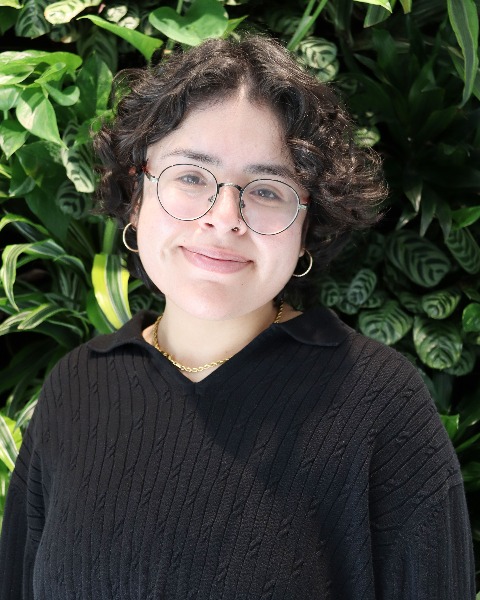Poster Presentation
Social Justice and Health Equity
Thursday Poster Power Hour
THURS-053 - Youth at the Center: Elevating Youth in Community Programming through Peer Education
Thursday, April 17, 2025
11:45 AM - 12:45 PM PST
Location: Pacific I/II, 2nd Floor
Area of Responsibility: Area V: Advocacy
Subcompetencies: 5.2 Engage coalitions and stakeholders in addressing the health issue and planning advocacy efforts., 5.2.4 Educate stakeholders on the health issue and the proposed policy, system, or environmental change.
Subcompetencies: 5.2 Engage coalitions and stakeholders in addressing the health issue and planning advocacy efforts., 5.2.4 Educate stakeholders on the health issue and the proposed policy, system, or environmental change.

Angel Mendoza, BS in Community and Regional Development
Health Educator II
Planned Parenthood of Orange and San Bernardino Counties
Anaheim, California, United States
Poster Presenter(s)
Learning Objectives:
At the end of this session, participants will be able to:
- Describe peer education as a program model, uplifting its ability to address disparities in health information, application within diverse populations, and versatility within various areas of public health
- Highlight the Planned Parenthood of Orange and San Bernardino Counties’ peer education program, sharing program logistics, recruitment strategies, and lessons learned
- Understand strategies for remaining youth centered during program implementation
- Hear about Planned Parenthood of Orange & San Bernardino Counties’ own peer education program: participants will learn about our own peer education program as a case example, discover the logistics and processes utilized in our program, and understand the successes and challenges our program has experienced
- Gain an understanding of youth-centered programming: participants will be introduced to the concept of youth-centered programming, understand the importance of adjusting perspectives and power-dynamics when supporting youth and young people through peer education, and hear from our own youth about what being youth-centered looks like to them
Detailed abstract description: Sexual & reproductive health education has documented positive impacts for youth and young people building healthy relationships, delaying sexual contact, increasing the use of contraceptives & barrier methods, and more. Despite overwhelmingly strong evidence supporting comprehensive sex ed programs, many youth & young people do not receive sexual and reproductive health education that is comprehensive & medically accurate. The 2018 CDC School Health Profiles found that fewer than half of high schools are teaching all 20 topics recommended by the CDC as essential components of sex education. Research also shows that youth from marginalized communities disproportionately receive non-comprehensive/inadequate sex education, despite parent/caregiver support for comprehensive sex ed.
Peer education is the sharing of information and experiences among individuals with something in common. Due to this program models have the potential to reach wider audiences by engaging people within target populations to make change within their communities through centering voices of people with lived experiences and delivering health education in a culturally responsive way. Peer education has been successfully implemented world-wide within various fields of public health including nutrition, mental health, and substance use. Research has shown that peer education is an effective method for educating on sexual & reproductive health and, at times, peer-lead interventions were found to be more successful in improving sexual knowledge than teacher-led interventions. For decades, Planned Parenthood of Orange and San Bernardino Counties has used the peer educator model to engage young people in the field of sexual & reproductive health, address health disparities, and create future leaders. In 2021, we adapted our program to address the needs of current high school aged teens. This adaptation has led to great success for the program with our 10-15 youth reaching 500+ individuals each year. Our program participants have shared overwhelmingly positive feedback, and over the past three years, 100% of our participants ended the program agreeing or strongly agreeing that “they know how to make a difference in the field of sexual & reproductive health” compared to only 53% at the start of the program.
In this workshop, we will share processes and tools that have led to our program’s success, with the hope of supporting participants in creating peer education programming of their own. Participants will gain a better understanding of the foundational principles of peer education and its application within various fields of public health. We will highlight key components of the Planned Parenthood of Orange and San Bernardino Counties’ peer education program, sharing program logistics, recruitment strategies, and lessons learned. Lastly, participants will have an opportunity to hear from our youth and learn strategies for being youth centered in program implementation.
